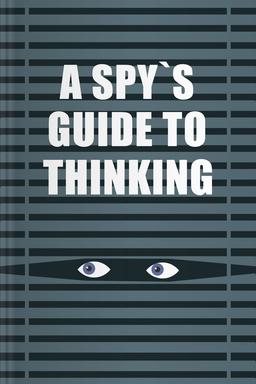You scroll through your feed, and every expert sounds convincing. One says coffee is toxic, another declares it prevents Alzheimer's. Who's right? Without critical thinking skills, you are easy to convince of anything. However, there is a good news. You can train your brain to cut through noise and fix weak arguments.
Books like Daniel Kahneman's 'Thinking, Fast and Slow' teach you how your mind tricks you into bad decisions. Michael Gelb in 'How to Think Like Leonardo da Vinci' shows you how curiosity fuels sharper thinking. These 44 books from our list will help you question smarter, decide faster, and stop falling for manipulative nonsense.
Books on critical thinking on how to read and filter the world
Critical thinking does not mean being skeptical or cynical. It is simply stopping before you take information as "fact." Mortimer Adler's classic text, ‘How to Read a Book,’ highlights that most people do not read, they only skim. To truly read, you must think critically and engage inquiry by simply asking questions of the material: What is the author's main assertion? What evidence does the author provide? Where does the author's argument fall short, or where are the gaps?
Daniel Levitin's 'The Organized Mind' reveals how information overload sabotages your judgment. Your brain wasn't built to process 34 gigabytes of data daily. When you're overwhelmed, you tend to default to shortcuts. You trust headlines without reading articles. You believe statistics without checking sources. Levitin teaches you to organize information so you can think clearly, rather than reactively.
Tom Nichols' 'The Death of Expertise' warns against a dangerous trend: dismissing experts because everyone's entitled to their opinion. Opinions aren't facts. A cardiologist knows more about heart disease than your cousin who read a blog. Critical thinking means distinguishing between expertise and noise. It's knowing when to listen and when to push back.
Books on how to think critically reveal your hidden biases
Your brain runs on autopilot most of the time. Daniel Kahneman calls this "System 1 thinking" in 'Thinking, Fast and Slow.' It's fast, emotional, and often wrong. You see a statistic that confirms your beliefs? System 1 says, "I knew it!" You ignore contradictory evidence because it makes you feel uncomfortable. Kahneman's decades of research show that smart people fall for the same mental traps as everyone else.
His co-authored book 'Noise' digs deeper. Two judges sentence the same crime differently, depending on the time of day. One doctor diagnoses cancer; another misses it entirely. This isn't bias — it's noise. Random variability in judgment that we ignore. Kahneman argues that reducing noise is just as important as reducing bias. You need systems, not just self-awareness.
Michael Gelb's 'How to Think Like Leonardo da Vinci' takes a different approach. Instead of listing cognitive errors, Gelb focuses on curiosity. Leonardo questioned everything. Why does the sky look blue? How do birds fly? He sketched, experimented, failed, and tried again. Gelb's exercises teach you to approach problems like an artist-scientist hybrid.
You stop accepting easy answers and start exploring possibilities.




